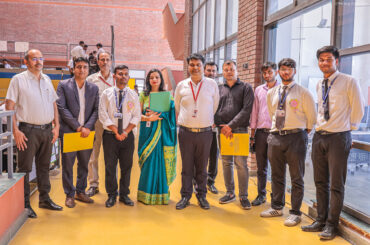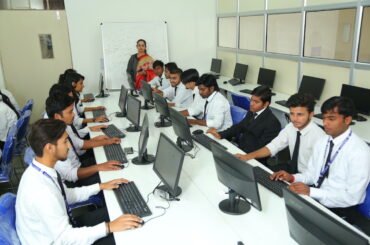After BCA Course
After BCA course, graduates are well-equipped with a foundational knowledge in computer applications, which opens up a multitude of pathways for further education and career development.
They can pursue advanced studies like a Master of Computer Applications (MCA) to gain deeper technical skills or an MBA to merge their IT skills with business insights.
Direct entry into the technology industry is another viable option, with roles such as software developer, systems analyst, or network engineer available.
Certifications in specialized areas like cybersecurity, data analytics, or cloud computing can enhance a graduate’s profile, making them more competitive in the job market.
Furthermore, the entrepreneurial route is also open for those looking to start their own tech-related business, leveraging the versatile skills acquired through their BCA.
Some of the most opted courses in India and St. Andrews college or different Engineering college or Management colleges are as follows:-
- Btech
- Btech CSE
- Btech ETCE
- MTech
- BCA
- BBA
- MBA
- MCA
- DPharma – St. Andrews College of Pharmacy
- BPharma – St. Andrews College of Pharmacy
- BArch – St. Andrews College of Architecture
Career Opportunities after BCA Course

After BCA course, a wide range of career opportunities become available in various fields, showcasing the versatility of the degree.
Here are some of the prominent career paths you can pursue after completing a BCA:
Software Developer
- Role: Develop, test, and maintain software applications.
- Skills Required: Programming languages (Java, C++, Python), software development methodologies, problem-solving.
Web Developer
- Creating and maintaining websites.
Digital Marketer
- Web content optimization, marketing analytics, and search engine optimization.
Software Developer Trainee
- An entry-level job position for BCA graduates, where the trainee is responsible for creating and maintaining software applications.
Banking Sector
- Digitization of the banking sector has opened up banking jobs for BCA graduates that usually include technical roles.
E-commerce Executive
- Maintaining the company’s digital and retail presence.
Educator
- BCA students who possess subject-matter expertise and are good in academics can take up a teaching job after graduation.
Blockchain Developer
- You can earn lucrative salaries in this new yet emerging sector with additional online certification.
System Analyst
- Role: Analyze and design information systems to help organizations operate more efficiently.
- Skills Required: Systems analysis, business process modeling, IT project management.
Database Administrator
- Role: Manage and maintain database systems to ensure data security and performance.
- Skills Required: SQL, database management systems (DBMS), data modeling, performance tuning.
Network Administrator
- Role: Manage and maintain computer networks within an organization.
- Skills Required: Network configuration, troubleshooting, network security, familiarity with networking hardware and software.
Cyber Security Analyst
- Role: Protect an organization’s systems and data from cyber threats.
- Skills Required: Cybersecurity principles, ethical hacking, threat analysis, incident response.
IT Support Specialist
- Role: Provide technical support and assistance to users within an organization.
- Skills Required: Troubleshooting, technical knowledge of operating systems and software, customer service.
Software Tester/QA Specialist
- Role: Test software applications to identify and fix bugs.
- Skills Required: Manual and automated testing, attention to detail, knowledge of testing tools.
Mobile App Developer
- Role: Develop applications for mobile devices.
- Skills Required: Mobile development frameworks (Android, iOS), programming languages (Java, Swift), app design.
Cloud Solutions Architect
- Role: Design and manage cloud-based systems and services.
- Skills Required: Cloud platforms (AWS, Azure, Google Cloud), cloud architecture, scalability and security.
Digital Marketer:
- Role: Use digital channels to promote products and services.
- Skills Required: SEO, SEM, social media marketing, content creation, analytics.
Entrepreneur
- Role: Start and manage your own business in the IT sector.
- Skills Required: Business acumen, leadership, innovation, project management.
Higher Education
- Options: Pursue advanced degrees such as MCA (Master of Computer Applications), MBA (Master of Business Administration), M.Sc. in IT, or specialized certifications.
- Benefits: Enhance your knowledge and skills, improve career prospects, and potentially increase your earning potential.
Data Scientist
- Role: Analyze and interpret complex data to help organizations make informed decisions.
- Skills Required: Statistical analysis, machine learning, data visualization, programming languages (R, Python).
Game Developer
- Role: Design and create video games for various platforms.
- Skills Required: Game development frameworks, graphic design, programming languages, creativity.
Technical Writer
- Role: Create manuals, guides, and other documentation to help users understand and use products or services.
- Skills Required: Strong writing skills, understanding of technical concepts, ability to simplify complex information.
Building a Successful Career after BCA Course

Building a successful career after completing a Bachelor of Computer Applications (BCA) involves strategic planning, continuous learning, and skill enhancement. Here are some steps to help you explore career options after BCA and achieve success:
Identify Your Career Interests and Goals
- Assess Your Interests: Determine which areas of IT and computer applications you are most passionate about as a BCA graduate, such as software development, web development, cybersecurity, data science, etc.
- Set Goals: Define short-term and long-term career goals. This will help you stay focused and motivated.
Gain Practical Experience
- Internships: Participate in internships during or after your BCA course to gain hands-on experience in your chosen field.
- Freelancing: Take on freelance projects to build a portfolio and demonstrate your skills to potential employers.
- Projects: Work on personal or open-source projects to enhance your practical knowledge and problem-solving abilities.
Pursue Further Education and Certifications
- Advanced Degrees: Consider pursuing higher education such as MCA, MBA, M.Sc. in Computer Science, or specialized master’s programs in areas like data science, AI, cybersecurity, etc.
- Certifications: Obtain relevant certifications to validate your skills and knowledge. Popular certifications include AWS Certified Solutions Architect, Certified Ethical Hacker (CEH), Google Professional Data Engineer, etc.
Stay Updated with Industry Trends
- Read Blogs and Articles: Follow industry blogs, news sites, and magazines to stay updated with the latest trends and technologies.
- Attend Workshops and Seminars: Participate in workshops, webinars, and seminars to learn from industry experts and network with professionals.
Develop Soft Skills
- Communication: Improve your written and verbal communication skills to effectively convey your ideas and collaborate with team members.
- Teamwork: Learn to work well in a team, as most IT projects require collaboration with colleagues from different backgrounds.
- Problem-Solving: Enhance your analytical and problem-solving skills to tackle complex technical challenges.
Build a Strong Online Presence
- LinkedIn: Create and maintain a professional LinkedIn profile. Connect with industry professionals, join relevant groups, and participate in discussions.
- GitHub: Showcase your coding projects and contributions to open-source projects on GitHub.
- Personal Website: Develop a personal website or portfolio to display your projects, skills, and accomplishments.
Network with Professionals
- Join Professional Associations: Become a member of professional associations such as the Association for Computing Machinery (ACM), Institute of Electrical and Electronics Engineers (IEEE), etc.
- Networking Events: Attend industry conferences, meetups, and networking events to build relationships with professionals in your field.
Apply for Jobs Strategically
- Resume and Cover Letter: Craft a well-structured resume and cover letter tailored to each job application. Highlight your skills, experience, and achievements.
- Job Portals: Utilize job portals like LinkedIn, Indeed, Naukri, and Glassdoor to search for job opportunities.
- Company Websites: Regularly check the career pages of companies you are interested in working for.
Prepare for Interviews
- Mock Interviews: Participate in mock interviews to practice and improve your interviewing skills.
- Common Questions: Prepare for common technical and behavioral interview questions.
- Portfolio: Present your portfolio of projects and certifications during interviews to demonstrate your capabilities.
Continuous Learning and Skill Development
- Online Courses: Enroll in online courses and MOOCs (Massive Open Online Courses) to learn new technologies and stay updated.
- Books and Tutorials: Read books and tutorials to deepen your understanding of specific topics.
Seek Mentorship
- Find a Mentor: Seek guidance from experienced professionals who can provide valuable insights and advice for your career development.
- Mentorship Programs: Participate in mentorship programs offered by educational institutions, professional associations, or online platforms.
Work-Life Balance
- Time Management: Develop effective time management skills to balance work, learning, and personal life.
- Health and Well-being: Take care of your physical and mental health to maintain productivity and job satisfaction.
Further Education and Specializations after BCA
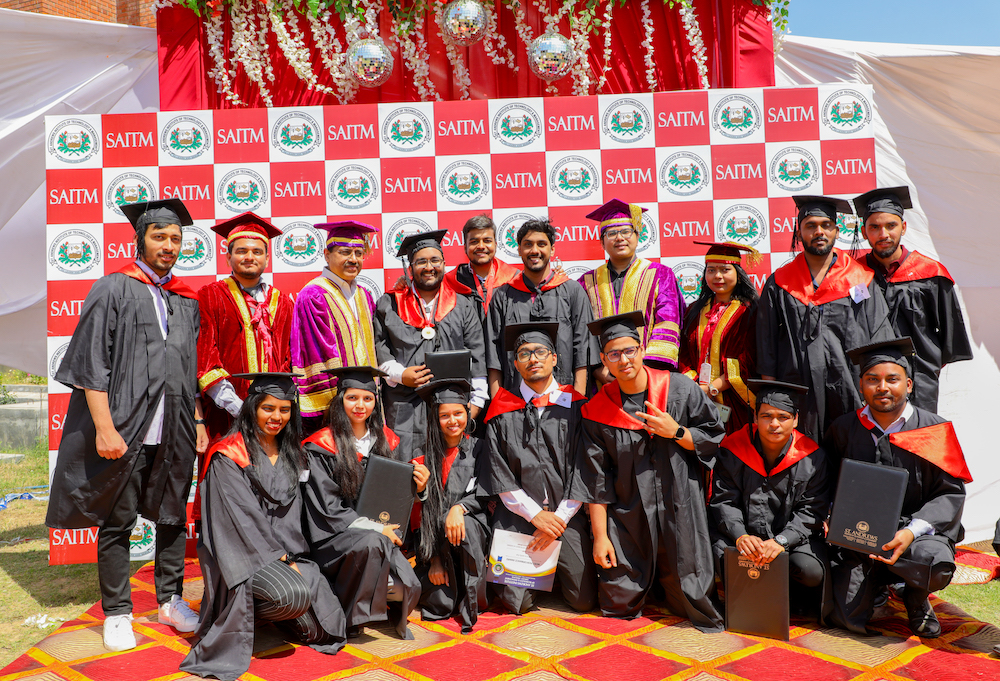
After BCA Course, you have several options for further education and specializations that can enhance your career prospects. Here are some of the most popular choices:
Master of Computer Applications (MCA)
- Duration: 2-3 years
- Focus: Advanced theoretical and practical knowledge in computer science and applications.
- Specializations: Software Development, Systems Management, Systems Development, Management Information Systems, Networking, Application Software, Hardware Technology.
Master of Business Administration (MBA)
- Duration: 2 years
- Focus: Business management and administration skills.
- Specializations: Information Technology, Finance, Marketing, Human Resource Management, Operations Management, Business Analytics.
Master of Science (M.Sc.) in Computer Science/Information Technology
- Duration: 2 years
- Focus: Advanced studies in computer science, IT, and related fields.
- Specializations: Data Science, Artificial Intelligence, Cyber Security, Cloud Computing, Software Engineering.
Post Graduate Diploma in Computer Applications (PGDCA)
- Duration: 1 year
- Focus: Practical and industry-oriented skills in computer applications.
- Specializations: Web Development, Database Management, Network Administration, Software Testing.
Certification Courses
- Duration: Varies (a few weeks to several months)
- Focus: Specific skills and technologies.
- Popular Certifications:
- Programming Languages: Java, Python, C++, JavaScript.
- Web Development: HTML, CSS, JavaScript, Angular, React.
- Database Management: Oracle, MySQL, SQL Server.
- Networking: Cisco Certified Network Associate (CCNA), CompTIA Network+.
- Cyber Security: Certified Ethical Hacker (CEH), Certified Information Systems Security Professional (CISSP).
- Cloud Computing: AWS Certified Solutions Architect, Microsoft Certified: Azure Solutions Architect Expert, Google Cloud Certified – Professional Cloud Architect.
- Data Science: Data Science Professional Certificate (IBM), Certified Data Scientist (CDS).
- Machine Learning & AI: Google AI Certification, TensorFlow Developer Certificate.
- Project Management: Project Management Professional (PMP), PRINCE2 Certification.
Master’s in Data Science or Big Data
- Duration: 1-2 years
- Focus: Advanced studies in data analysis, big data technologies, and machine learning.
- Skills Acquired: Data mining, statistical analysis, machine learning algorithms, big data tools like Hadoop and Spark.
Master’s in Artificial Intelligence or Machine Learning
- Duration: 1-2 years
- Focus: Specialized knowledge in AI and ML technologies.
- Skills Acquired: Neural networks, natural language processing, computer vision, AI frameworks (TensorFlow, PyTorch).
Master of Technology (M.Tech.) in Computer Science
- Duration: 2 years
- Focus: Advanced technical knowledge and research in computer science.
- Specializations: Computer Networks, Distributed Computing, Software Engineering, Cyber Security, Embedded Systems.
Master of Science (M.Sc.) in Cyber Security
- Duration: 2 years
- Focus: Protecting systems, networks, and programs from digital attacks.
- Skills Acquired: Ethical hacking, threat assessment, security protocols, cryptography.
Master’s in Management Information Systems (MIS)
- Duration: 1-2 years
- Focus: Integration of IT and business management.
- Skills Acquired: Business process analysis, systems design, IT project management, ERP systems.
Online Courses and MOOCs
- Platforms: Coursera, edX, Udacity, Khan Academy, LinkedIn Learning.
- Focus: Flexible learning in various fields related to computer applications and IT.
Top Recruiters for BCA Graduates
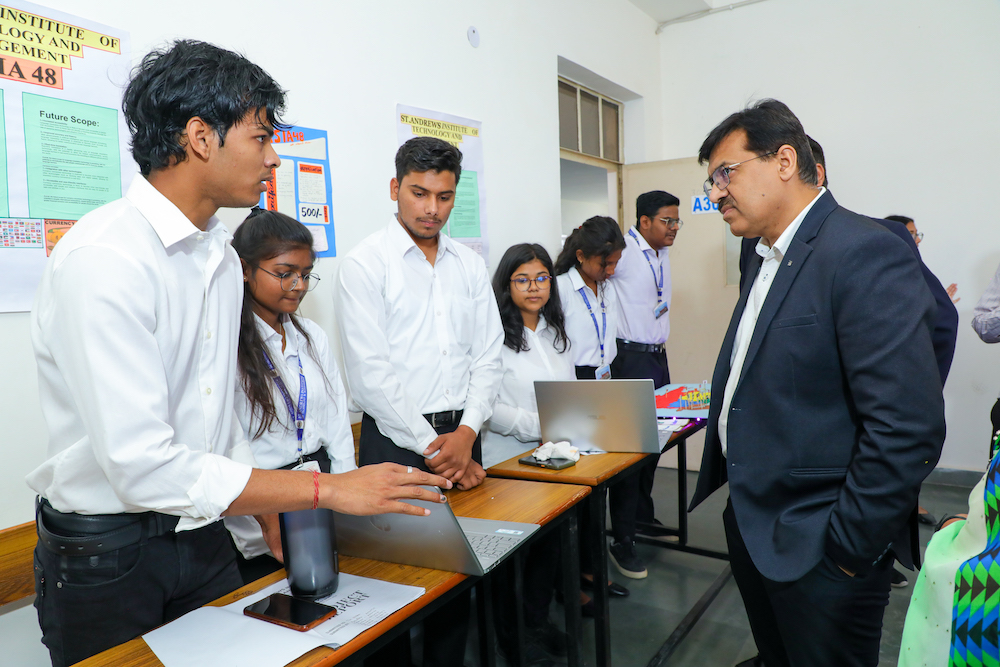
Top recruiters for BCA graduates often come from a diverse range of industries, primarily in the IT and tech sectors. These companies offer roles in software development, system administration, database management, and more. Here are some of the top recruiters for BCA graduates:
Top Recruiters for BCA Graduates:
Tata Consultancy Services (TCS)
- Role: Software Developer, System Analyst, IT Support
- About: TCS is a leading global IT services, consulting, and business solutions organization.
Infosys
- Role: Software Engineer, Systems Engineer, Analyst
- About: Infosys is a multinational corporation that provides business consulting, information technology, and outsourcing services.
Wipro
- Role: Project Engineer, Software Developer, IT Consultant
- About: Wipro offers information technology, consulting, and business process services.
Cognizant
- Role: Programmer Analyst, Software Engineer, IT Support
- About: Cognizant is a multinational corporation that provides IT services, including digital, technology, consulting, and operations services.
HCL Technologies
- Role: Software Developer, Network Engineer, IT Consultant
- About: HCL is a next-generation global technology company that helps enterprises reimagine their businesses for the digital age.
IBM
- Role: Software Engineer, System Administrator, Data Analyst
- About: IBM is a leading cloud platform and cognitive solutions company.
Accenture
- Role: Software Developer, Business Analyst, IT Consultant
- About: Accenture is a global professional services company with leading capabilities in digital, cloud, and security.
Capgemini
- Role: Software Developer, Systems Analyst, IT Consultant
- About: Capgemini is a global leader in consulting, digital transformation, technology, and engineering services.
Tech Mahindra
- Role: Software Developer, Network Engineer, IT Support
- About: Tech Mahindra provides information technology (IT) services and solutions.
Microsoft
- Role: Software Engineer, Data Scientist, IT Support Specialist
- About: Microsoft is a global technology company known for its software products, including the Windows operating system and the Office suite.
- Role: Software Developer, Systems Engineer, Data Analyst
- About: Google is a multinational technology company specializing in Internet-related services and products.
Amazon
- Role: Software Developer, Data Analyst, IT Support
- About: Amazon is a multinational technology company focusing on e-commerce, cloud computing, and artificial intelligence.
Oracle
- Role: Database Administrator, Software Developer, Systems Analyst
- About: Oracle is a multinational computer technology corporation known for its software products and services, especially its database management systems.
SAP
- Role: Software Developer, Business Analyst, IT Consultant
- About: SAP is a global company that provides enterprise application software and software-related services.
Deloitte
- Role: Business Analyst, IT Consultant, Software Developer
- About: Deloitte is a multinational professional services network offering audit, tax, consulting, enterprise risk, and financial advisory services.
Skills Gained During BCA Program

Programming Proficiency
- Languages Learned: C, C++, Java, Python, etc.
- Application Development: Writing code for various software applications.
- Problem-Solving: Developing logical thinking and problem-solving abilities through coding challenges and projects.
Database Management
- Basic Concepts Database : Understanding relational databases, SQL, and NoSQL databases.
- Database Design: Designing and managing database schemas.
- Data Handling: Performing data manipulation, querying, and reporting.
Web Development
- Frontend Development: HTML, CSS, JavaScript, and related frameworks.
- Backend Development: Server-side scripting languages like PHP, Node.js, etc.
- Web Technologies: Understanding web protocols, APIs, and web services.
Software Engineering
- Software Development Lifecycle (SDLC): Understanding the stages of software development.
- Project Management: Learning about project planning, execution, and management tools.
- Quality Assurance: Implementing testing methodologies and maintaining software quality.
Networking
- Network Fundamentals: Understanding network architecture, protocols, and devices.
- Network Security: Basics of network security measures and practices.
- Troubleshooting: Identifying and solving network-related issues.
Data Structures and Algorithms
- Core Concepts: Understanding various data structures (arrays, linked lists, trees, etc.) and algorithms (sorting, searching, etc.).
- Efficiency: Analyzing and optimizing code for performance.
- Problem Solving: Applying data structures and algorithms to solve complex problems.
Operating Systems
- OS Concepts: Understanding operating system architecture, processes, and memory management.
- System Administration: Basics of system installation, configuration, and maintenance.
- File Systems: Learning about different file systems and their management.
Mobile App Development
- Mobile Platforms: Developing applications for Android and iOS platforms.
- App Design: Designing user interfaces and experiences for mobile apps.
- App Deployment: Understanding the process of deploying and maintaining mobile applications.
Cyber Security
- Security Principles: Basics of cyber security and its importance.
- Threat Analysis: Identifying and mitigating security threats.
- Ethical Hacking: Introduction to ethical hacking and penetration testing.
Soft Skills
- Communication Skills: Effective written and verbal communication.
- Teamwork: Collaborating with team members on projects.
- Time Management: Managing time efficiently to meet deadlines.
- Critical Thinking: Analyzing problems and making informed decisions.
Project Management
- Planning: Learning to plan and scope projects effectively.
- Execution: Implementing projects using various methodologies like Agile, Scrum, etc.
- Documentation: Creating comprehensive project documentation.
Professional Development
- Industry Knowledge: Understanding current trends and technologies in the IT industry.
- Ethics: Learning about professional ethics and responsibilities.
- Career Planning: Developing a career path and setting professional goals.
Role of Mathematics in Computer Applications
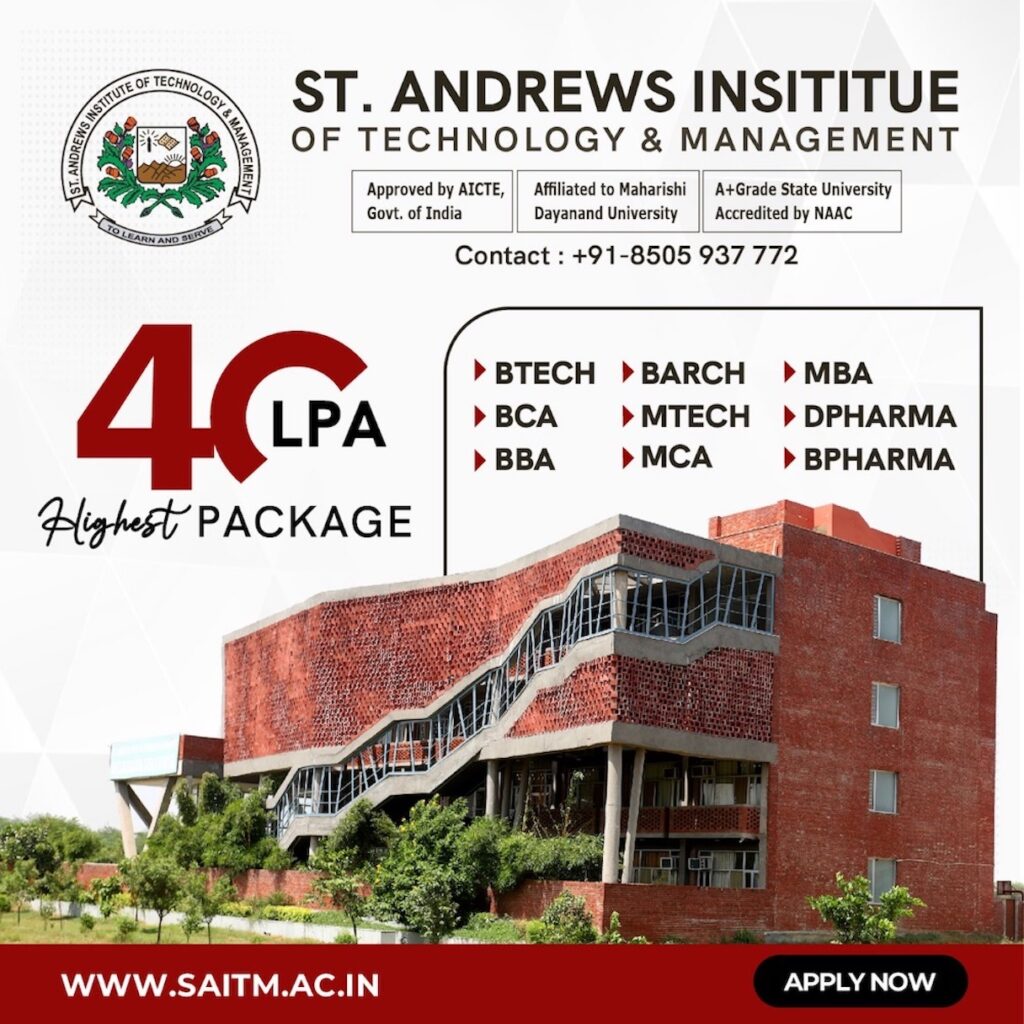
Mathematics plays a crucial role in computer applications and forms the foundation for various aspects of computing.
Here are some key roles of mathematics in computer applications:
Algorithms and Data Structures:
- Mathematics provides the theoretical foundation for designing efficient algorithms and data structures.
- Concepts such as graph theory, combinatorics, and probability are essential for understanding and optimizing algorithms.
Cryptography and Security:
- Cryptography relies heavily on number theory, algebra, and complex mathematical algorithms to secure data.
- Techniques such as encryption, hashing, and digital signatures are based on mathematical principles.
Computer Graphics and Visualization:
- Geometry, linear algebra, and calculus are fundamental for rendering graphics, modeling 3D objects, and creating visual effects.
- Transformation matrices, vector spaces, and differential equations are used to manipulate images and animations.
Machine Learning and Artificial Intelligence:
- Statistical methods, probability theory, and linear algebra are essential for developing machine learning models and algorithms.
- Optimization techniques, such as gradient descent, rely on calculus to minimize error functions.
Theoretical Computer Science:
- Formal languages, automata theory, and computational complexity are based on mathematical logic and set theory.
- These areas are crucial for understanding the limits of computation and designing efficient algorithms.
Network Theory:
- Graph theory is used to model and analyze networks, including social networks, communication networks, and transportation networks.
- Mathematics helps in optimizing network flows, finding shortest paths, and detecting network vulnerabilities.
Software Development:
- Mathematical logic and Boolean algebra are used in designing and verifying software programs.
- Formal methods and proof techniques ensure the correctness and reliability of software systems.
Simulation and Modeling:
- Differential equations, numerical methods, and probability are used to simulate real-world systems and processes.
- Applications include weather forecasting, financial modeling, and scientific research.
Discrete Mathematics:
- Discrete structures, such as sets, graphs, and logic, are fundamental in computer science for problem-solving and algorithm design.
- Topics like combinatorics, graph theory, and logic are integral to the study of computer science.
FAQs
What is a Bachelor of Computer Application (BCA)?
A three-year undergraduate degree program that imparts students with knowledge of basic computing skills and software development.
It is usually the first step into the world of Information technology.
Why Pursue a Master’s Degree After a BCA Course?
Evaluating higher education options like MCA, M.Tech, or MS can boost your career.
A master’s degree builds advanced expertise, especially for senior or leadership positions in your domain.
What are the Eligibility Criteria for a BCA Program?
Candidates from any stream, such as Science, Arts, or Commerce, with 50% or more in the 12th class or an equivalent course without approximation, are eligible for a BCA program in computer management.
What are the Entry-Level Jobs for BCA Graduates?
Software developer trainees, management trainees, data analyst trainees, and software testing trainees are few among the wide range of entry-level jobs for BCA graduates.
Is a BCA Course Worth Pursuing for a Successful Career?
The future scope of BCA is bright.
It is vital to select the right institute to improve the authority of your certification.
Check the amount of time, difficulty level, and price of the course before deciding which course to opt after your graduation.
What are the career options after completing a BCA course?
Career options include software developer, web developer, system analyst, database administrator, network administrator, cyber security expert, IT support specialist, software tester, mobile app developer, cloud solutions architect, digital marketer, entrepreneur, data scientist, game developer, and technical writer.
Should I pursue further education after BCA?
Yes, pursuing further education like MCA, MBA, M.Sc. in Computer Science, or specialized certifications can enhance your skills, improve career prospects, and open up higher-level job opportunities.
What certifications are beneficial after completing a BCA?
Beneficial certifications include AWS Certified Solutions Architect, Certified Ethical Hacker (CEH), Google Professional Data Engineer, Cisco Certified Network Associate (CCNA), and certifications in programming languages (Java, Python), web development, cybersecurity, and cloud computing.
What is the average salary for BCA graduates?
The average salary for BCA graduates in India varies based on the job role and experience, typically ranging from ₹2.5 lakhs to ₹6 lakhs per annum for entry-level positions. With experience and advanced skills, salaries can significantly increase.
What skills are essential for BCA graduates to succeed in their careers?
Essential skills include programming languages (Java, Python, C++), web development (HTML, CSS, JavaScript), database management (SQL, Oracle), networking, cybersecurity, cloud computing, data analysis, problem-solving, and strong communication skills.
Can I start my own business after BCA?
Yes, you can start your own business after completing BCA courses. Many BCA graduates become entrepreneurs in the IT sector, offering services like software development, web design, digital marketing, and IT consulting.
Is it beneficial to gain work experience before pursuing higher education after BCA?
Gaining work experience before pursuing higher education can be beneficial as it provides practical knowledge, helps in understanding industry requirements, and may enhance your learning experience in advanced courses.
Is Mathematics compulsory for admission to the BCA course?
The requirement for Mathematics varies by institution for BCA admission. Some colleges and universities require Mathematics as a subject at the 10+2 level, while others do not. It’s important to check the specific eligibility criteria of the institution you are applying to for BCA admission.
Can I pursue BCA if I did not have Mathematics in my 10+2?
Yes, many institutions allow students without Mathematics in their 10+2 to pursue a BCA degree. However, some institutions may require Mathematics as a mandatory subject. Always verify the eligibility criteria of the institution you are interested in.
Why do some institutions require Mathematics for BCA?
Mathematics is required by some institutions because the BCA curriculum includes subjects like algorithms, data structures, and computer mathematics, which require a basic understanding of mathematical concepts.
Will I struggle in BCA if I don’t have a strong background in Mathematics?
While having a background in Mathematics can be helpful, it is not necessarily a barrier to success in a BCA program. With dedication and the willingness to learn, you can grasp the required mathematical concepts during the course.
What kind of Mathematics is taught in the BCA course?
The Mathematics taught in BCA programs typically includes topics like discrete mathematics, probability and statistics, calculus, linear algebra, and mathematical foundations for computer science. These subjects are essential for understanding advanced computer science topics.


